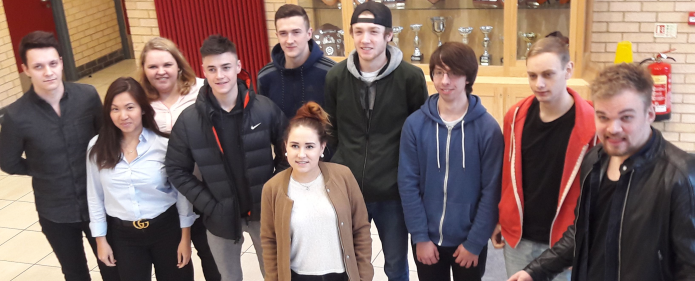
Improving work placements to boost the employability prospects of rural learners in Somerset
Ensuring that young people leave the education system with essential life and work skills as well as good academic results is increasingly important – especially in rural areas where job opportunities are often more scarce.
Taunton and Bridgwater College serves just such an area in Somerset and set out to address this issue when it launched the Developing Life and Employment Competences through Mobility project with a €355,000 Erasmus+ grant.
The main aim was to improve the effectiveness of overseas work or study placements by developing a suite of online employability and entrepreneurship learning resources for use before, during and after the trips.
It embedded an ‘I can do this’ mentality, improving the self-esteem of students, particularly those from deprived backgrounds.
Developing a wider skills set
As well as collaborating with higher education and vocational education and training partners in Spain, Slovenia, Finland and the Netherlands, the project worked closely with employers and representative bodies, such as the local chamber of commerce, to ensure that the educational outcomes closely matched workplace demands.
The resources were trialled and tested by students during a range of placements before being made freely available online.
Jon Harding, European Erasmus+ Project Manager at the college, said: “It’s about improving the students’ wider skill set. In a rural area like ours, young people sometimes lack those soft employability skills.
"They might have extensive knowledge but they lack core, common talents such as writing a CV, teamwork or going to interviews. We had a number of employers come in to the college to work with us on this, reading through the modules and giving their feedback.

"They gave us their views on what they needed to see from potential employees and gave their feedback on the course, on how we could improve it and what was lacking.”
Alongside improving basic job-seeking skills, the project also had a focus on entrepreneurship and the opportunities that launching your own business presents.
“What we forget is that we look at those common skills but there is a gap, especially in the UK, in terms of how we teach entrepreneurship,” Jon said.
“Students here, sports students, for instance, quite often tend to want to go off and set up their own personal training companies and things like that but lack the skills, the understanding of how to be an entrepreneur. We found there was a lack of understanding of what an entrepreneur is.”
A focus on inclusion and diversity
Improving inclusion and diversity was also a focus for Bridgwater and Taunton College, which caters for a significant number of students with fewer opportunities, including limited experience with foreign travel.
“The travelling opportunities produced positive impacts for UK students, equipping them with new skills and a different perspective on life, employment and culture,” said Jon.
"It embedded an ‘I can do this’ mentality, improving the self-esteem of students, particularly those from deprived backgrounds.

"The course has given them an understanding of new technology, such as LinkedIn profiles and video CVs, that can help them to find work.”
The resources and modules are available to learners and staff online but also via an app, so that they can be accessed away from the classroom and can be used by students prior to and during placements, if necessary.
This interactivity and the use of new technologies was also one of the key benefits for Jon, which, he says, has had advantages for students and staff alike.
Staff have also benefitted from working and sharing ideas throughout the college’s expanding network of contacts across the continent.

“I think it has helped understanding the different curriculum areas and the way that they are taught differently abroad," said Jon.
"It’s having that long lasting relationship with the other partners that they still have. They still talk, they still email, they still communicate and talk about development and understanding.”
The core modules of the project remain available for use among the wider education and training community and are undergoing continual development to improve their relevance to newly emerging methods and make them available on newer technologies.
Read more of our Erasmus + VET Stories to see how funding is being used across the sector.
